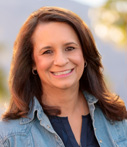Science on the Dashboard!
By Debbie Gordon, CASE President
Yes, science will be on the California School Dashboard as a placeholder by December 1, 2024. Coming next, science will be included in differentiated assistance in 2025 and part of the Every Student Succeeds Act (ESSA) reporting by 2026.
Lots of work and advocacy still needs to be done, but this is a big step forward in letting districts know that the state of California recognizes the importance of a robust science education for all our students.
The CASE Advocacy committee and the CASE board led our efforts over the last 11 years to increase the visibility of science at the state level. Peter A’Hearn, CASE Past-President spoke at the recent State Board of Education meeting,:
“We are very excited about the work plan for adding science to the accountability system. Adding science to the accountability system will increase the visibility of science and ensure that districts invest in making sure that ALL California students get the great science education that they deserve. We look forward to a continuing productive partnership with CDE (California Department of Education).”
What else is CASE doing for you?
CASE is a proactive voice for TK-16 formal and informal science educators in the state. Through our leadership, staff, and members, we are present at State Board of Education and Instructional Quality Commission meetings and at Legislative hearings on an ongoing basis, to promote the needs of our members and science education.
Volunteering for a CASE committee is a great way for you to get involved, too. Two of CASE’s committees are the Policy Committee and the Advocacy Committee. The Policy Committee, chaired by Jennifer Mutch and Tricia Dennis, develops CASE position statements on critical or timely topics. The Advocacy Committee, chaired by Crystal Starr Howe, Rudy Escobar and Peter A’Hearn, keeps an eye on what the legislature is up to, makes public comments at State Board of Education meetings when appropriate, and keeps the board aware of potential bills we may want to support or not. An example of this is the discussion around animal dissection in high school science classes. You can read different perspectives about dissection in this issue of CCS. CASE believes that open discussions about how to best teach science are essential.
So read on and then tell us what you think about this topic? What other topics concern you, your students, your community? Please leave comments below, email me, or consider writing an article for CCS.
Embrace spring (sunshine, warmer weather) and enjoy this issue of CCS. Thank you for being a member of CASE and remember to tell a friend!
Look for registration for the California Science Education Conference in Sacramento, November 8-10, 2024 to open in the spring. You won’t want to miss the super bird registration rates.

Happy Spring!
Debbie Gordon, President
STEAM Teacher, Palm Springs USD






